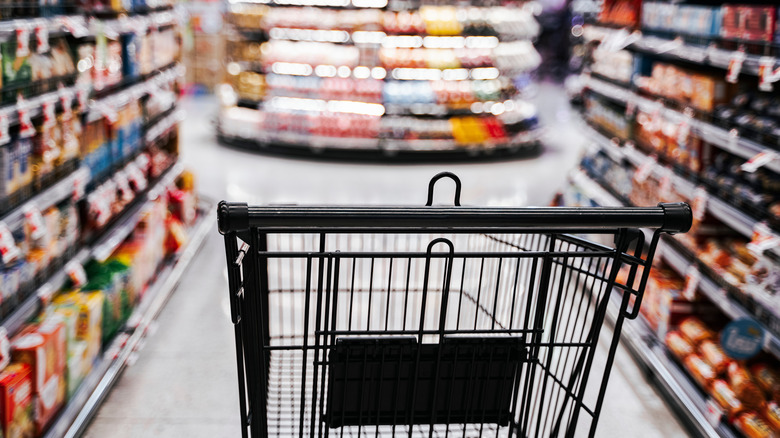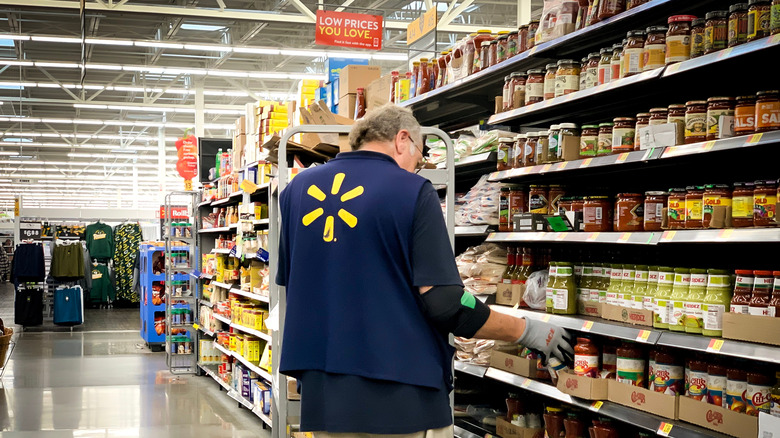Grocers Are Pushing Back Against Increased Prices After Reports Of High Earnings
Inflation has translated to increasingly higher food prices over the past year. In December, the Economic Research Service of the USDA noted that supermarket prices were up nearly 12% from the previous year. The most recent Consumer Price Index data from the U.S. Bureau of Labor Statistics, meanwhile, showed a modest increase of 0.5% for "food at home" in January. That's the index that measures grocery and supermarket prices, and though it's an indication inflation is slowing, the increase in food prices hasn't abated.
When will food prices stop increasing? That's definitely a concern for consumers, many of whom have changed their shopping habits in an attempt to get more value for their money. From coupon clipping to shopping at dollar stores, more consumers are indicating their distaste for rising food prices by seeking the most budget friendly options available.
For prices to actually lower, however, supermarkets and grocery outlets are going to have to convince their suppliers to bring down prices. This could be a tough sell given many suppliers are reporting higher earnings, often based largely on price hikes. But it's a positive sign that some major supermarket chains are finally starting to push back against their suppliers' soaring prices.
Why supermarket chains are pushing back now
Last week, Reuters reported that Walmart pushed back against suppliers, warning it would promote its own value food brands at the expense of suppliers' products if the situation didn't improve. And Walmart isn't the only supermarket chain to push back. Bobby Gibbs, a partner in the retail and consumer goods division of the marketing consulting firm Oliver Wyman, told The Washington Post both Albertson's and Target had been asking suppliers for more reasonable prices, while the Wall Street Journal reported back in January that Whole Foods had done the same.
Why are supermarket chains pushing back now? Consumer desire for lower prices is one reason. But the pushback may also stem from the fact that many food and consumer goods manufacturers are reporting high earnings despite selling fewer products. Kraft Heinz, for example, a major supermarket supplier, outpaced revenue projections, with a 15.2% hike in prices offsetting its 4.8% drop in volume. Unilever, the company behind brands such as Hellman's and Knorr, saw its profits increase based on an 11.3% price jump, even as volume dipped. Coca-Cola, too, raised its prices and beat revenue expectations, despite less volume.
The pushback could also reflect an acknowledgement that some of the factors behind rising food costs have changed. Inflation has slowed and the supply chain disruptions so common during the pandemic have largely been mitigated (via The Washington Post). But whether the supermarkets' stance leads to lower food prices remains to be seen.

